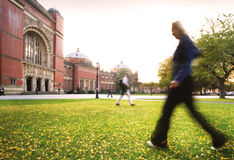
Scientists discover new mechanisms that bacteria use to protect themselves from antibiotics
Birmingham, Nov 13 (IBNS): Researchers at the University of Birmingham have identified new mechanisms used by bacteria to resist infection-fighting antibiotics.
Antibiotic resistance happens when bacteria evolve mechanisms to withstand the drugs which are used to treat infections.
The team of experts at the University’s Institute of Microbiology and Infection focussed their research on E. coli, which can cause urinary and blood stream infections.
Using novel experimental approaches, involving whole genome DNA sequencing never previously applied in this area of research, the team identified mechanisms or ‘strategies’ that bacteria use to protect themselves from antibiotics.
Senior author Professor David Grainger said: “We investigated a gene found in bacteria that is involved in resistance to multiple antibiotics."
“Although we have known about this gene for many decades, the ‘nuts and bolts’ of how it provides resistance to antibiotics has been difficult to pick apart. Our research identified previously unknown roles for this gene in controlling processes that provide drug resistance," he said.
“We found two completely unexpected mechanisms that bacteria use to protect themselves from antibiotics. One protected their DNA from the harmful effects of fluoroquinolone antibiotics, and the other prevented doxycyline getting inside bacteria.”
Dr Prateek Sharma, who did much of the experimental work, added: “The resistance mechanisms that we identified are found in many different species of bacteria therefore, our research could lead to the discovery of molecules that could be developed into new drugs that can treat bacterial infections.”
The study, published today in Nature Communications, was the result of a decade-long research project carried out by the University.
Co-author Professor Laura Piddock concluded: “Antibiotics underpin modern medical, veterinary and farming practices world-wide. However, the efficacy of antibiotics is decreasing as more bacteria become resistant. Research such as ours that provides greater understanding of drug resistance mechanisms is vital if we are to address the global crisis of antibiotic resistance.”
Support Our Journalism
We cannot do without you.. your contribution supports unbiased journalism
IBNS is not driven by any ism- not wokeism, not racism, not skewed secularism, not hyper right-wing or left liberal ideals, nor by any hardline religious beliefs or hyper nationalism. We want to serve you good old objective news, as they are. We do not judge or preach. We let people decide for themselves. We only try to present factual and well-sourced news.







